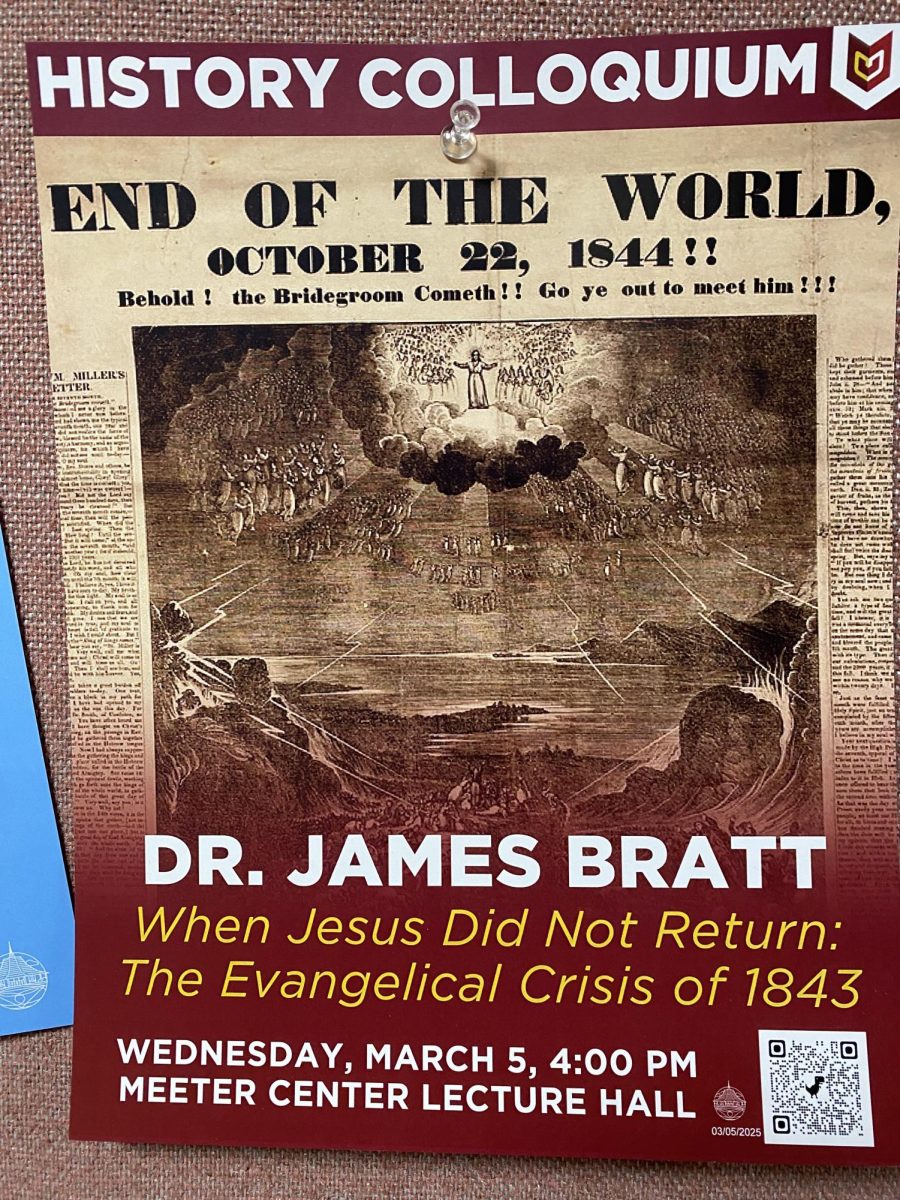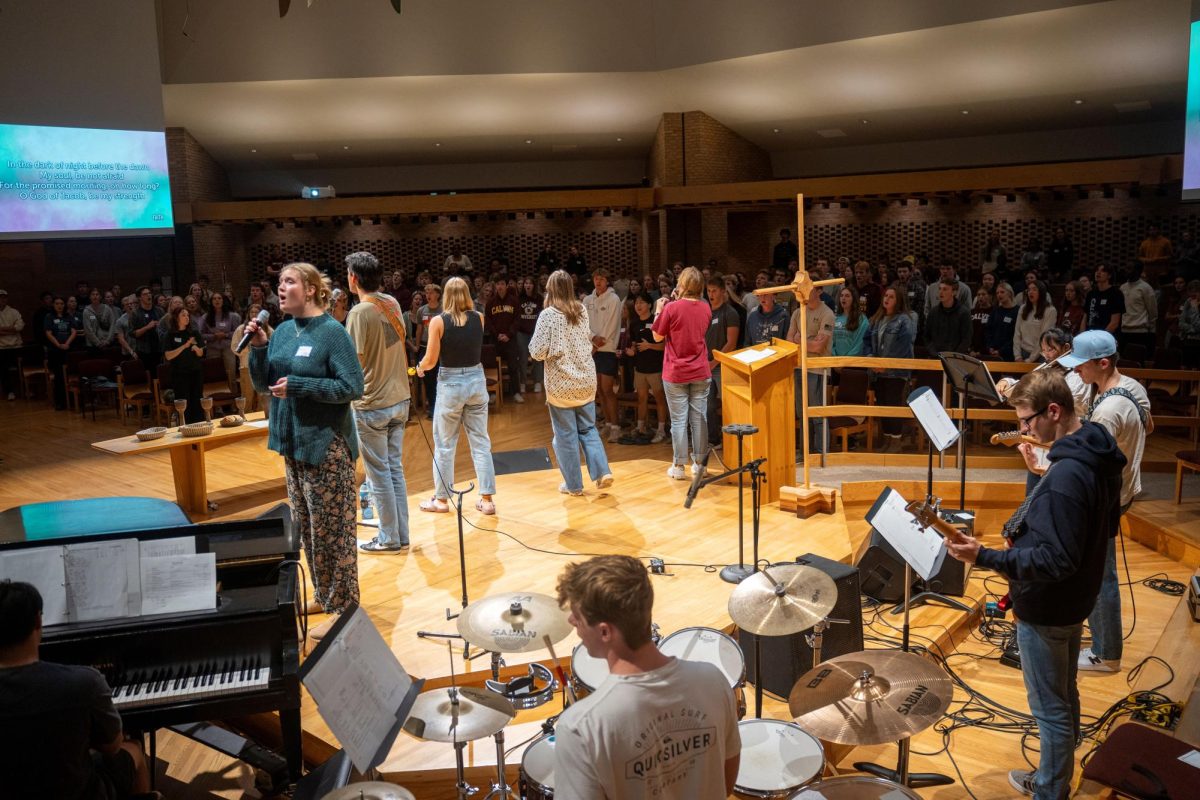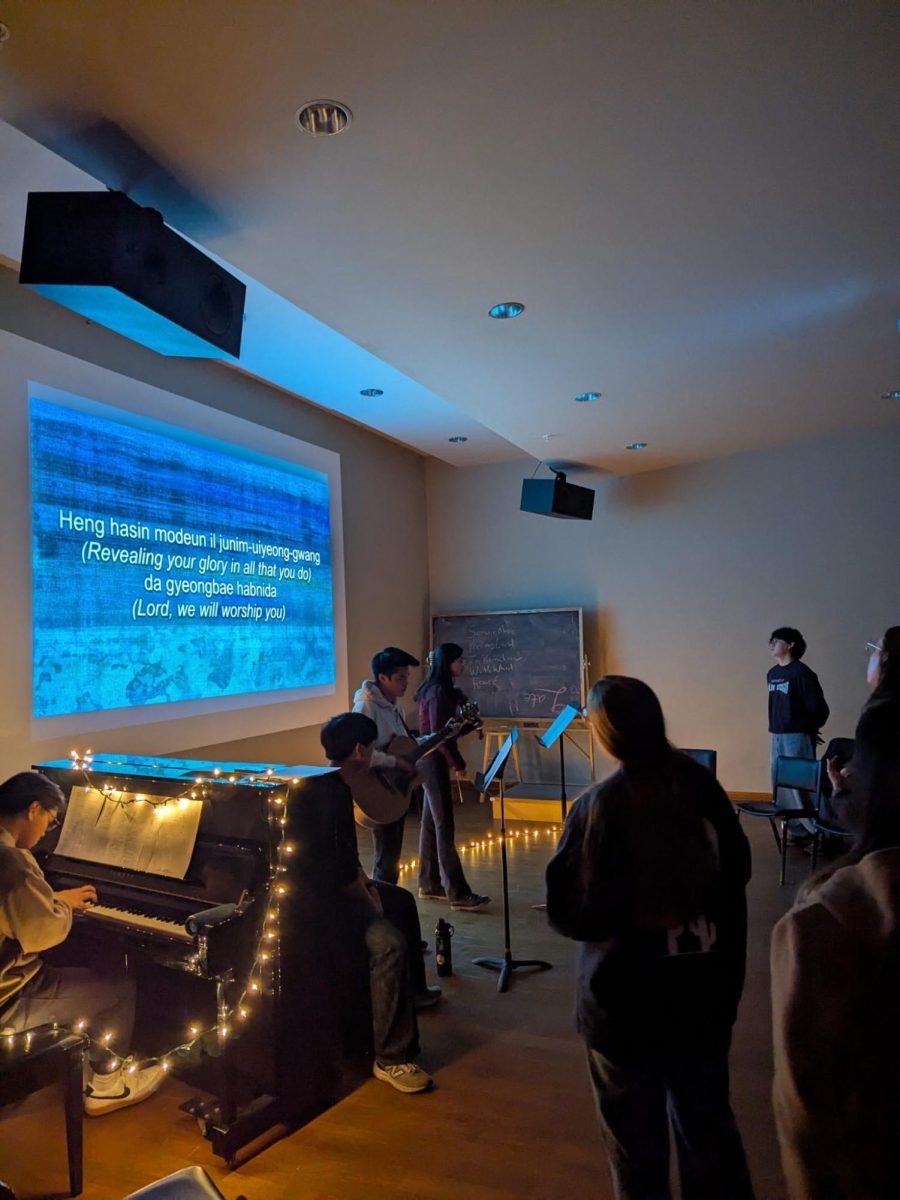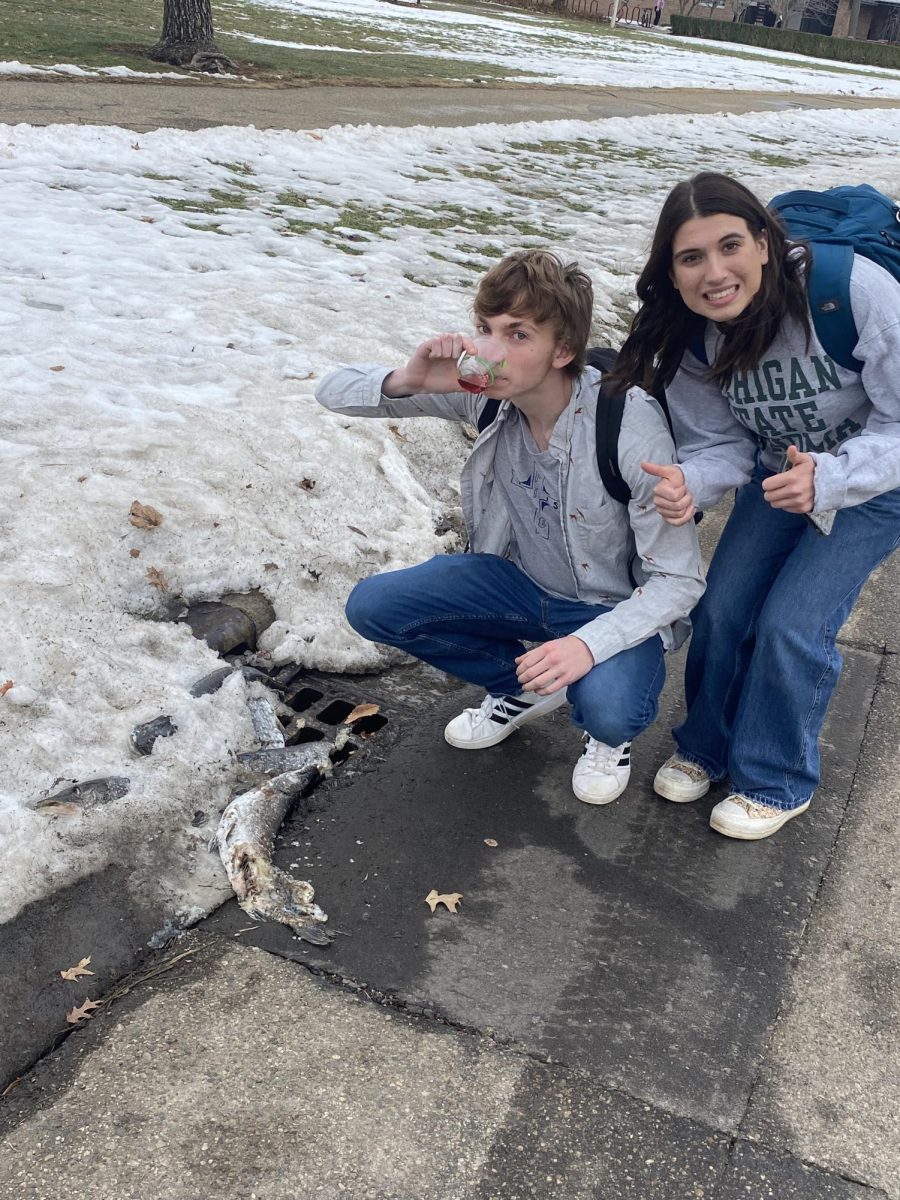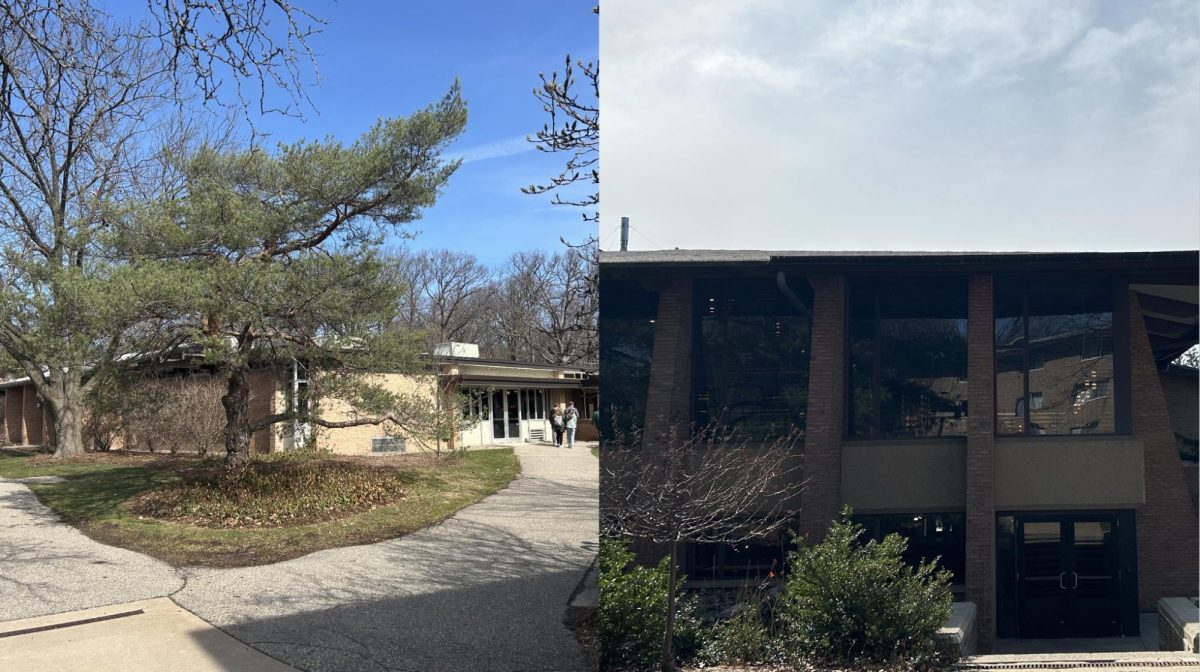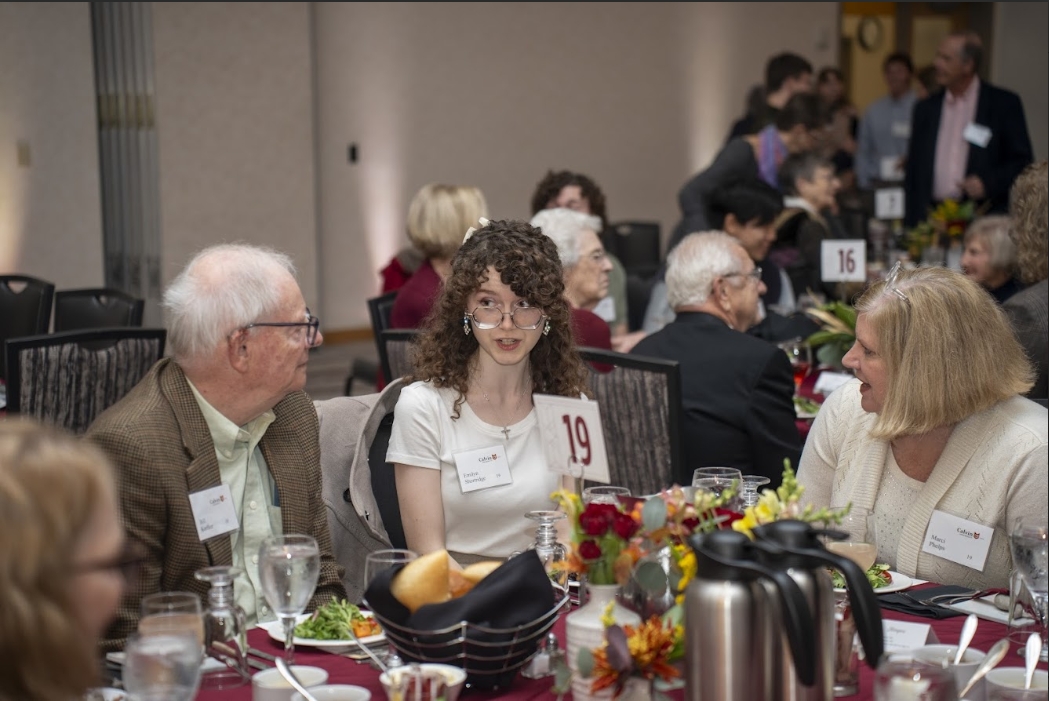At its annual synod on Tuesday, June 18, the Christian Reformed Church in North America (CRCNA) told Calvin’s board of trustees (BOT) to “develop language and processes in alignment with those in the CRC” for faculty members who disagree with parts of church doctrine. The denomination characterized the move as part of an effort to “rebuild trust” between Calvin and CRC churches, particularly over some faculty members’ opposition to the 2022 decision by the CRCNA to elevate the denominational position on “homosexual sex” to confessional status.
The decisions at Synod 2024 significantly tightened the interpretation of church policy on gravamina (singular: gravamen), which are official statements that officebearers and others in the church can file to register disagreement with a specific part of church doctrine. Calvin is one of the denominational institutions instructed to “review and revise, as needed, their gravamina policies.”
Deciding Calvin’s path forward is the responsibility of the 31 BOT members, who were charged with reporting directly to Synod 2025 on their progress. Some board members are chosen directly by synod, and all board members must receive synodical approval to confirm their appointment.
“We’re just beginning the process of refining and updating [the gravamina] procedures per Synod’s directive,” Bruce Los, BOT chair, told Chimes in a written statement. As the board moves forward with revisions in the coming months, it’s important to remember that the BOT is “neither starting from scratch nor being given explicit instructions for how the University should handle confessional commitment” Los said.
Dr. David Koetje, professor of biology and chair of the faculty senate, told Chimes that the administration was “still trying to figure out what this means for Calvin faculty who’ve acted in good faith within Calvin’s longstanding gravamina process.”
Calvin’s policies are currently outlined in its Handbook for Teaching Faculty. When a member of the faculty has a disagreement with part of the confessions of the CRCNA — the Belgic Confession, the Heidelberg Catechism, and the Canons of Dort — they are required to communicate that disagreement in writing to the BOT. Calvin’s Professional Status Committee will then work with the board to recommend “appropriate action” on a case-by-case basis.
Following Synod 2022, a number of Calvin faculty have submitted gravamina related to the denomination’s confessional stance on human sexuality, but they have also historically been able to file gravamina on unrelated parts of church doctrine, such as beliefs about infant baptism. Several of the CRCNA’s regional classes filed overtures to Synod 2023 and 2024 expressing concern about Calvin faculty’s use of gravamina related to the denomination’s positions on sexuality.
Even as this year’s synodical report recognized “Calvin’s efforts to be faithful to the Reformed confessions in the context of academic inquiry,” its recommendations aimed for more direct oversight than those in previous years. For example, the 2023 committee report recommended allowing Calvin to “continue their current course of action” on faculty exceptions to their Covenant for Faculty, while “encouraging Calvin University to diligently oversee alignment with our confessional standards.” However, due to time constraints, recommendations from this report were never voted on, and the report was passed on as information to Synod 2024.
At the same time, professor emeritus of history Dr. James Bratt noted that Synod 2024’s decision isn’t unique in terms of denominational oversight for Calvin faculty. Throughout the 1940s, faculty were required to submit their syllab to synod for review. According to Bratt, in the 1980s and 1990s, Calvin physics professor Howard Van Til was subject to charges of heresy by CRC members and “close scrutiny by Synod” related to his scholarship on the age of the Earth and the publication of his controversial book “The Fourth Day”, which opposed creationism. In the early 2010s, synod questioned Calvin religion professors John Schneider and Daniel Harlow over how they taught about creation and evolution.
Some Calvin faculty are nervous about the implications of synod’s decision for the future. “The CRC has provided many, many blessings and gifts in my life… But what happened last week is a new version of the CRC. I have never seen the complete shutting down of principled dissent like we saw this week,” Debra Rienstra, professor of English and a longtime CRC member, said.
To clarify the implications of the decision, university administration held a town hall for faculty on Tuesday, June 25. “I came away trusting that the university leadership and the board of trustees want to continue to carve out a place and a way for Calvin University to be the kind of institution it’s always been,” Dr. Jamie Smith, professor of philosophy, said of the meeting. “Now they [the board of trustees] have a year to propose a way for that to happen that would satisfy the Synod of the Christian Reformed Church.”
Synod instructed Calvin’s board to bring a progress report on the confessional-difficulty gravamen process specific to the university context to the 2025 denominational meeting. “We don’t expect any immediate impact on faculty or students in 2024-2025,” university provost Noah Toly said. “I’m encouraged that there’s a path forward in which we build on the policies and procedures we already have in place.”
Calvin, and the CRCNA, have long been known for their commitments to rigorous intellectual inquiry. Elizabeth Koning, a deacon delegate to synod and a recent alumna of Calvin, hopes that tradition will continue in the wake of synod’s decision. “The things that I experienced at Calvin are different than what people get at a lot of other Christian schools,” Koning said, noting that “people here talk about evolution as something that our understanding of is glorifying to God.”
Smith is lamenting the decision’s impact on the denomination, and its potential consequences for Calvin. “I worry that Calvin University, like some of our congregations, are going to have to face the possibility that you can either be CRC or you can be Reformed,” Smith said. “To be Reformed is to be always reforming, which means that, yes, you are convicted and centered in the confessions, but it also means a spirit of intellectual and deep theological inquiry and wrestling with the ongoing work of the Spirit to discern what it means to be faithful now.”
(A version of this story appeared in Religion News Service on June 27, 2024)
— In an earlier version of this story, Chimes incorrectly identified Dr. David Koetje as vice-chair of faculty senate. Dr. Koetje is in fact chair of faculty senate. We regret the error and have corrected it.




